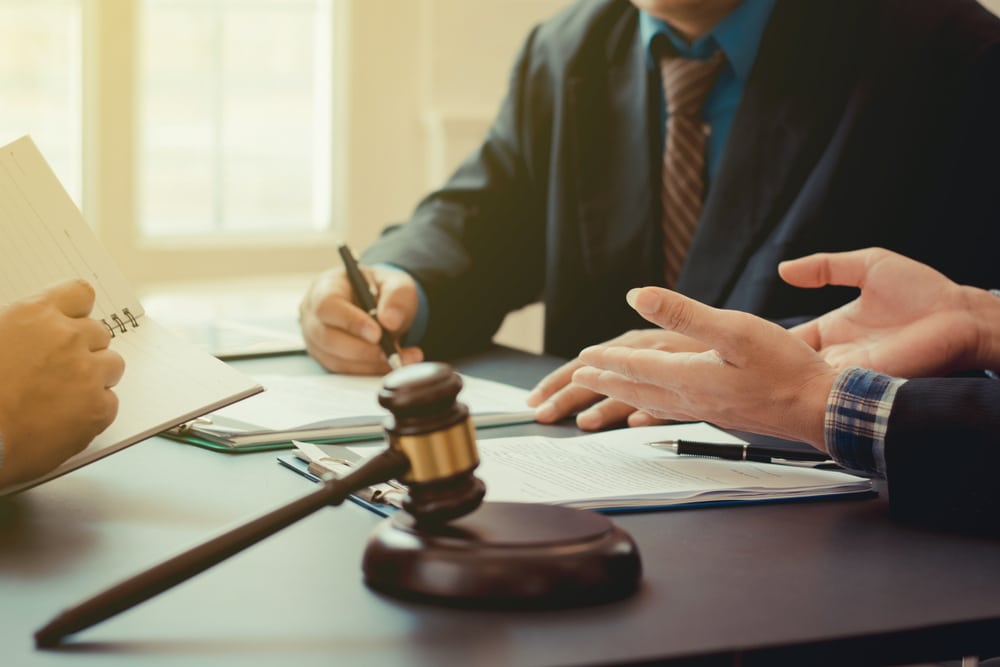Introduction
Litigation support is a broad field, covering many different tasks, all aimed at assisting attorneys who handle complex litigation. Forensic accounting is a crucial part of litigation support. It’s especially valuable in terms of determining economic damages. A qualified forensic accountant has the experience and skills needed to effectively support attorneys in this area. This post delves into the role of CPAs as forensic accountants and accredited business valuators in litigation support roles. It also addresses key questions surrounding their involvement.
Forensic accounting, business valuation, and economic damages are common aspects of litigation. Attorneys and law firms often require the expertise of a CPA to provide litigation support in a variety of different types of financial disputes. In this post, we will explore four key questions related to the role of forensic accountants in litigation support:
- When do attorneys and law firms use litigation support in general?
- Why do attorneys and law firms work with forensic accountants for litigation support?
- What are the benefits of having a forensic accountant provide litigation support?
- How can you tell if a forensic accountant can provide strong litigation support services?
When do attorneys and law firms use litigation support in general?
Litigation support is employed by attorneys and law firms to assist in the preparation, presentation, and resolution of legal disputes. The use of litigation support services is typically driven by the complexity of the case, the need for specialized expertise, and the desire to streamline the legal process. Common scenarios where litigation support services are used include:
- Financial fraud investigations
- Contract disputes
- Bankruptcy proceedings
- Business disputes
- Divorce and family law cases involving complex financial matters
- Intellectual property disputes
- Insurance claims and disputes
- Shareholder disputes
- Mergers and acquisitions disputes
Why do attorneys and law firms work with forensic accountants for litigation support?
Forensic accountants possess specialized skills and knowledge in financial analysis, accounting principles, and investigative techniques. They play a crucial role in litigation support by:
- Uncovering financial discrepancies and fraud that may not be readily apparent to legal professionals
- Providing expert testimony on complex financial matters
- Analyzing and interpreting financial data to provide valuable insights
- Assisting in the discovery process by identifying, organizing, and analyzing financial documents
- Valuing businesses and other assets in the context of legal disputes
- Calculating economic damages, lost profits, and other financial impacts of disputes
- Developing financial models and projections to support legal arguments
By collaborating with forensic accountants, attorneys and law firms can leverage their financial expertise to build stronger cases, save time and resources, and ultimately, achieve better outcomes for their clients.
What are the benefits of having a forensic accountant provide litigation support?
Collaborating with a forensic accountant during litigation support can offer several benefits:
- Enhanced credibility: A well-prepared forensic accountant can provide credible, independent, and objective analysis and testimony that can bolster a legal argument.
- Efficient case management: Forensic accountants can streamline the discovery process and help attorneys focus on the most critical financial aspects of a case.
- Effective communication: Forensic accountants can simplify complex financial matters, making it easier for attorneys, judges, and juries to understand the financial implications of a case.
- Comprehensive financial analysis: Forensic accountants can identify patterns and trends in financial data, offering insights that may be overlooked by legal professionals.
- Risk mitigation: The expertise of a forensic accountant can help attorneys identify potential financial risks and challenges, enabling them to address these issues proactively.
How can you tell if a forensic accountant can provide strong litigation support services?
When selecting a forensic accountant for litigation support, consider the following factors to ensure they can provide strong and effective services:
- Relevant experience: Look for forensic accountants who have a proven track record in providing litigation support and serving as an expert witness. This includes experience and familiarity with relevant laws and regulations.
- Credentials and certifications: Seek out professionals who hold relevant certifications, such as the Certified Public Accountant (CPA), and Accredited in Business Valuation (ABV) designation. These certifications demonstrate a commitment to ongoing education and adherence to professional standards in the field of forensic accounting.
- Strong communication skills: Effective forensic accountants should be able to communicate complex financial information in a clear and concise manner, both in writing and verbally. This is essential for ensuring that attorneys, judges, and juries can understand the financial aspects of a case.
- Analytical and problem-solving skills: A skilled forensic accountant should be able to identify patterns, trends, and discrepancies in financial data, as well as develop innovative solutions to complex financial problems.
- Reputation and references: When evaluating potential forensic accountants, consider their professional reputation and seek recommendations from colleagues or other professionals in your network. Look for testimonials that demonstrate their ability to provide effective litigation support services.
- Availability and responsiveness: In the fast-paced world of litigation, it’s essential to have a forensic accountant who can complete your requests in a timely manner. Ensure that the professional you choose has the capacity to dedicate the necessary time and resources to your case.
- Confidentiality and professionalism: Forensic accountants must handle sensitive financial information and maintain strict confidentiality. Be sure to select a professional who demonstrates a commitment to upholding ethical standards and maintaining the privacy of your case.
Conclusion
Forensic accountants play a crucial role in litigation support by providing invaluable financial expertise and analysis. Their involvement can enhance credibility, streamline case management, and improve communication, ultimately leading to better outcomes for clients. When selecting a forensic accountant, consider their experience, credentials, communication skills, analytical abilities, reputation, and commitment to confidentiality to ensure they can provide the strong litigation support services your case requires. By leveraging the skills of a forensic accountant, attorneys and law firms can navigate complex financial disputes with greater confidence and success.




